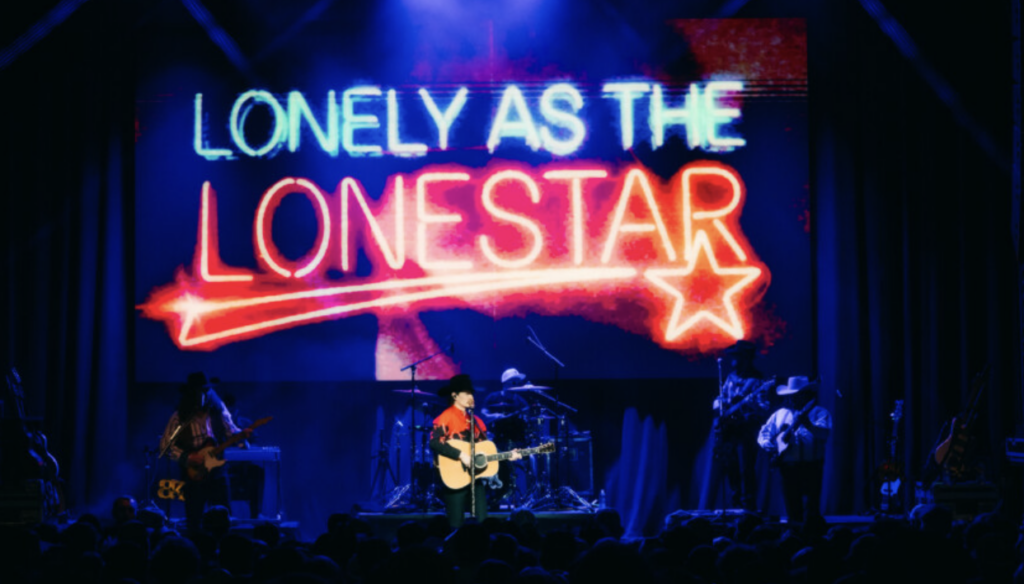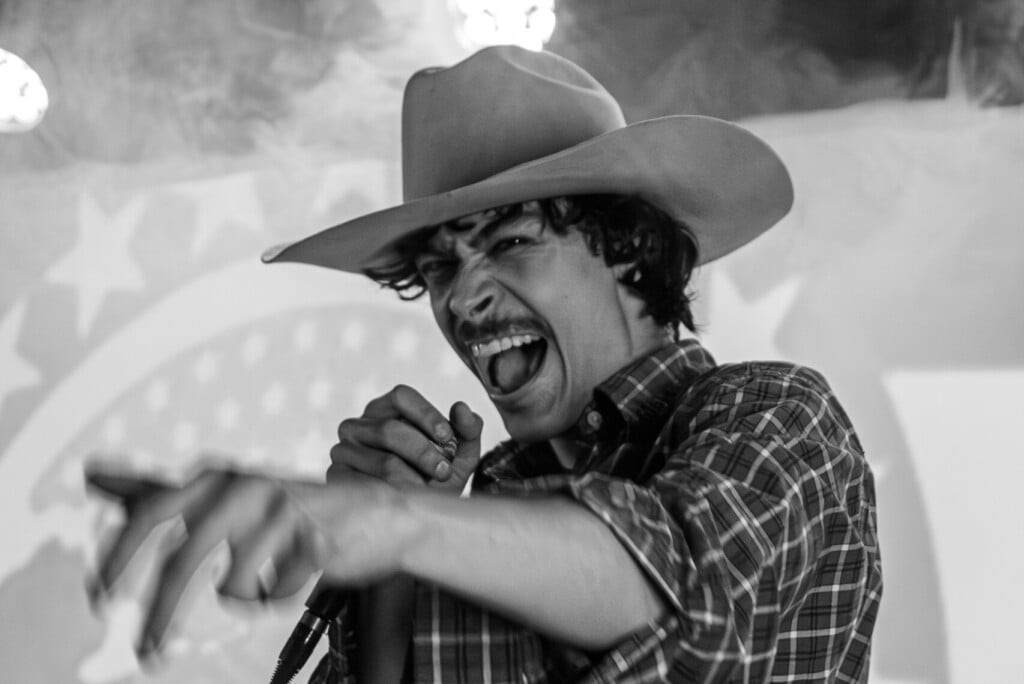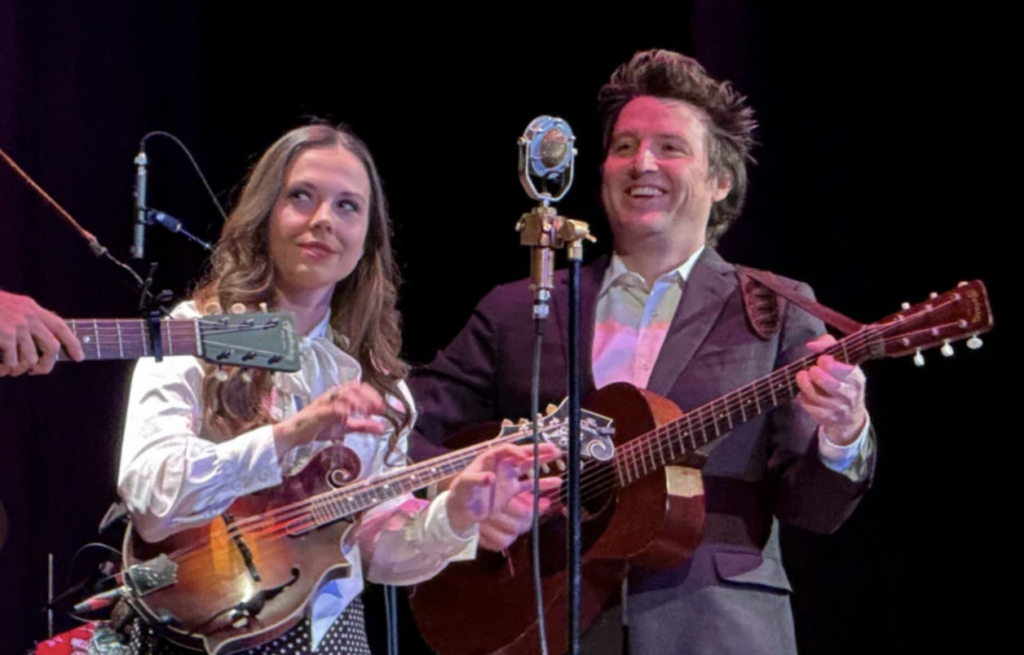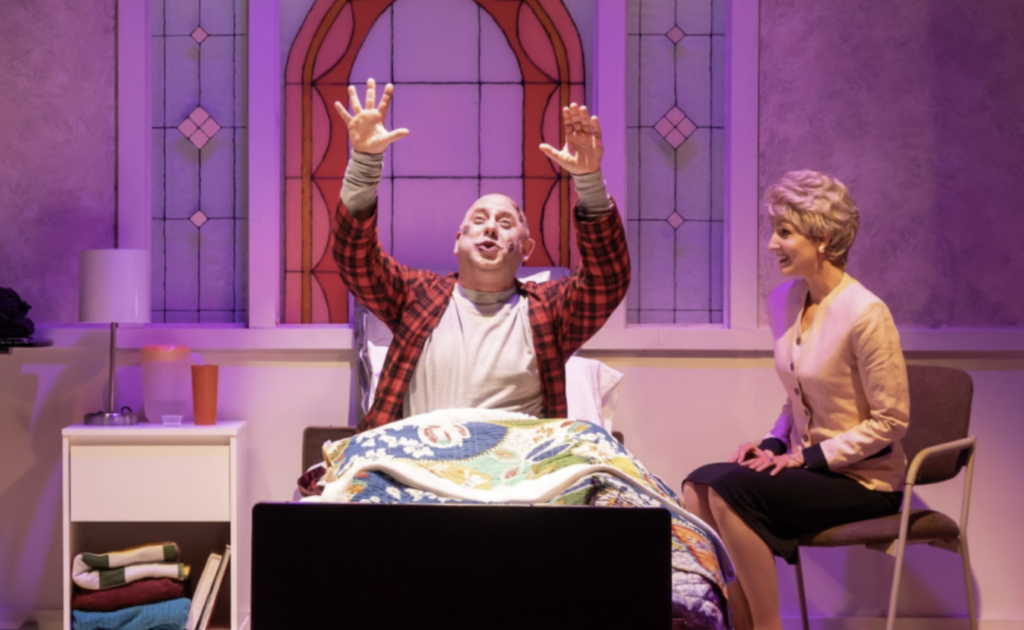Composer and The Trap Set host Joe Wong on his debut solo album, Nite Creatures
Musician, composer, and host of the wildly-popular podcast The Trap Set, Joe Wong is something of a big name in music these days. However, it seems that he has a lengthy connection with Kansas City and Lawrence. In addition to participating in Steps of Faith’s annual Thundergong! fundraiser, way way back in his late teens, Wong’s “math rock angular weirdo noise band” Akarso played a house show with Reflector and the Casket Lottery. Unsurprisingly, Wong still maintains a relationship with Reflector’s Jake Cardwell, who is a big part of Gladstone drum company, C&C Drums.
This is all what I learn within the first three minutes of my chat with Wong, which is ostensibly about his recently-released album on Decca, Nite Creatures. Happily, it set the tone for a fantastic conversation about creativity as it applies to Wong’s new LP.
The Pitch: I love that you’ve gone from playing like basement shows to scoring like Netflix shows that are massive hits.
Joe Wong: Yeah, it took like close to 30 years but, I mean, that’s the trajectory now.
I find Nite Creatures just absolutely fascinating. Not only because of the songs but the way it’s being released. You not only put out the album, but you put out the instrumental version of the album. That had me wondering: did you do the instrumentals first and then write to those?
To be clear, there’s a deluxe version of it coming out that’s gonna have the instrumentals, but no. The reason why we put out the instrumentals is just because now, kind of as a matter of course when you’re mixing a record, they ask that you print instrumental versions in case somebody wants to sync it to film or TV, and since I’m already in that world and uniquely positioned to procure those kind of opportunities for myself, it made sense to have the instrumental versions.
When I was listening to the instrumental mixes as my great mixer Dave Fridmann was mixing them, I was like, “Oh, maybe we should just put this out, too, commercially–and I say “commercially” loosely because obviously nobody makes money off of records–but I thought that they stood up pretty well on their own. The songs were based around the vocal melodies–all of them. That’s how they were written.
When I was writing them, I consciously was working with a pretty minimal setup. I wrote most of them just playing bass and singing, so that I would find melodies that worked and wasn’t focused on the harmonic colors or anything like that. After I had the basic songs, it wasn’t that big of a leap to get to the fully fleshed-out orchestral versions because I work in the scoring world and I just heard the scope of what I wanted to do, almost immediately.
As the opening track, “The Dreams Wash Away” has this very baroque opening that then goes into like this very Pixies-esque wash of sound. To me, that just screams “opening track!” as it sets the tone so well. In terms of sequencing on this album, it tells a story, but was this always intended to be the introduction to the story that Nite Creatures tells?
Not consciously. It was one of the last songs that I wrote for the record and I was thinking about how to make a big statement to open the record and what you’re referring to as the baroque opening–that was something that came to mind that would be a nice way to start an album. It’s relatively simple but also kind of bold and then the melody that it goes into–the guitar melody, which is played by the great Mary Timony–was inspired by listening to lots of Brazilian music at the time.
So to me, that’s kind of a Brazilian melody and lo and behold there’s a big Brazilian audience for that song, apparently. The label tells me that, because they can look into the metrics on the streaming for that song, it has lots of Brazilian fans and that song was also featured in a show that I scored called The Midnight Gospel, so I think that’s how lots of people outside of the States discovered it, as well.
I think if I was kind of trying to write something that would be a big statement to open the record, so maybe you’re right. I’m just trying to remember. I was trying not to think about those kind of things too consciously while I was making the album because I’m kind of neurotic and I wanted to just get outside of my head and make something.
Nite Creatures was sent to me about the same time that I got a repress of Spiritualized’s Ladies and Gentlemen We Are Floating In Space in the mail and listening to the two albums back-to-back, I just heard so many big sounds. I’m curious as to whether any of those big–not like, capital ‘S’ statement records, but records that have had an impact–influenced you or if there was anything that you had in mind as a template for the sound of this record?
I definitely didn’t have anything in mind like as a template but like I said, I was kind of hearing this large-scale orchestration from the beginning and I was listening to lots of artists that were employing that approach: people like the band Love or the Walker Brothers or Scott Walker’s solo stuff or lots of Kate Bush. The Zombies.
In fact, when I wrote “Dreams Wash Away,” lots of it was written in the studio and I didn’t know exactly what the melody was going to be for the verse yet. We recorded the basic tracks, Mary Timony and I in Joshua Tree, and then the next day, I hosted a live podcast and performance by the Zombies in nearby Palm Springs. They were on my mind and I was driving to go hang out with them, and that’s when the melody popped into my head for the verse, the vocal and I think for the chorus, too.
It was kind of a half-finished song and I was heading to go see the Zombies so we were listening to Zombies on the way over, because I was trying to think of questions to ask them for this live event, so maybe that kind of rubbed off on me. I can’t imagine why it wouldn’t have.
On this album, you have some fantastic guests, and I appreciate the fact that Craig Wedren is one of those guests because, like you, he came from the world of indie rock and also moved on to scoring. It seems like the two of you would have a lot in common, even were it not for this record.
Yeah, I mean, both of us grew up in the Midwest, then both of us moved to D.C. and were part of the Dischord scene there. I played in a band with a couple people that had put out albums on Dischord and I made a brief appearance on one Dischord album and I wrote liner notes for another one, so I’m tangentially related to Dischord–not as strongly as Craig, obviously, who put out a few records with Shudder to Think on Dischord.
Then, both of us moved to New York and played in bands there and then, ultimately moved to L.A. I was always kind of on Craig’s trail because he’s a big brother type figure who’s maybe 10-12 years older than me. He was somebody that I looked up to and didn’t really know but then, maybe about four years ago, it turns out that Craig and I have the same agent for film and TV, and that person put us together on a project, and Craig and I scored a movie together. During the course of that, we became really close friends and now I consider him to be one of my closest friends and, as I said, like a big brother type figure because he came from the same place, physically and creatively.
In addition to talking to people who have always been composers, I always find it really fascinating to talk to folks such as yourself, who have come out of being in bands, who then move into scoring things, because it seems like it offers like a different perspective to that particular musical craft.
First of all, for most of my life, it’s more common than not for people to come out of playing in bands or the pop world and become composers, starting with Danny Elfman all the way through to people like Mika Levy and Trent Reznor, and Mark Mothersbaugh. Even Hans Zimmer produced records by The Damned. That he comes from a punk/pop background: I think it’s it’s more common than not. That’s where people are coming out of these days and the difference is the intention.
When you’re making your own album, you’re the arbiter of what’s working and what’s not and, in my case, it’s a very personal statement, whereas in film and TV, you’re there to supplement and help somebody else realize his or her vision, creatively, so it’s a completely different approach. With film and TV scoring, the primary–in my opinion–skill is the ability to communicate with the filmmaker and really get inside of that person’s head and understand their vision, whereas making my own album, I had to go inside my own head or my own heart and figure out what it was that I wanted to say which, in some ways, is a lot harder.
Both of them present unique challenges but, for me, it was easier to score other people’s projects because it’s a joy to help people bring their creative vision into the world. It’s certainly a big responsibility, because music colors the show or the film, but it seems like it’s an easier responsibility for me than trying to make my own statement.
That said, making the album was extraordinarily rewarding. I had to kind of get past lots of my neuroses and I ultimately employed the same kind of methods that I use when I’m scoring in order to to make it: I set a deadline and I brought in Mary Timony to produce, so I would be accountable to someone else, and I booked a studio that I don’t own so that it felt more intentional and it didn’t feel like I was just in my own space with an open-ended schedule. Once I did those things, the muscles that I developed from scoring for all these years kicked in and surprisingly, things moved pretty quickly.
Going back to what we were talking about at the top of all of this: you’ve been doing this for 30-some years now. You’ve played in a slew of bands, including with your producer, Mary Timony, and you’ve scored all of these shows, but this is the first thing that is yours and has your name on it. What’s the feeling for you, now that it’s out? Is it more your baby than anything else so far, because it says “Joe Wong” on the cover?
Yeah. Definitely. It is, and it’s more rewarding and then, in some ways, more of an emotional roller coaster than I’ve experienced doing anything else, When I was writing the album, I was also working on Russian Doll with Natasha Lyonne and I was watching her, first-hand, as she was coming into her own as an auteur and that was really inspiring to me, but now I understand that struggle to make a statement so personal and want it to really live out in the world. I’m happy that I made the record and I like it, which is a big thing for me, because I’m pretty hard on myself, historically. To have made something that I really like is a big step.
Given that you’ve interviewed so many people on your podcast, The Trap Set, as you started to think about recording your own album did you ever or were you ever tempted to pick the brains of these folks that you interviewed about recording their first solo projects?
Sure. I mean, I don’t think I was consciously picking their brain so that I could use that information when I made an album, because I knew I wanted to make one, but I wouldn’t even admit it to myself when I started the podcast, but I think the aggregate effect of talking to hundreds of my musical heroes is that I have this vast repository of inspiration and knowledge from all those conversations.
You mentioned that the album was the first thing with my name on it. Well, the podcast was technically the first thing with my name on it, but it was kind of a bridge between facilitating someone else’s vision and having a statement of my own, in the sense that I see [The Trap Set] as a platform to tell other people’s stories but I am present in it, as well.
The curation of the guests–especially for the first couple hundred episodes– is reflective of my taste and of my history and my artistic heroes so, yeah, I mean I can think of things that specific guests have told me that have really stayed with me.
For example, Sheila E was telling me about how she uses her nervous energy. I like that the feeling of butterflies in your stomach as an indicator of which direction to head creatively. Making an album was the scariest thing imaginable to me and so, I tried to lean into that and it worked. Another thing that I’ve been thinking about recently–since we can’t tour for the foreseeable future–is something Phil Collins told me, and that was that he made Face Value and No Jacket Required before he went on tour. He had two solo albums of material to pull from before he went on tour, so I’m going to try to take a page out of his book. I’m working on the next album now, with the thought that I’d like to release it before a tour, which might not be for at least a year.
Joe Wong’s Nite Creatures is out now from Decca and can be ordered from the artist’s webstore.





